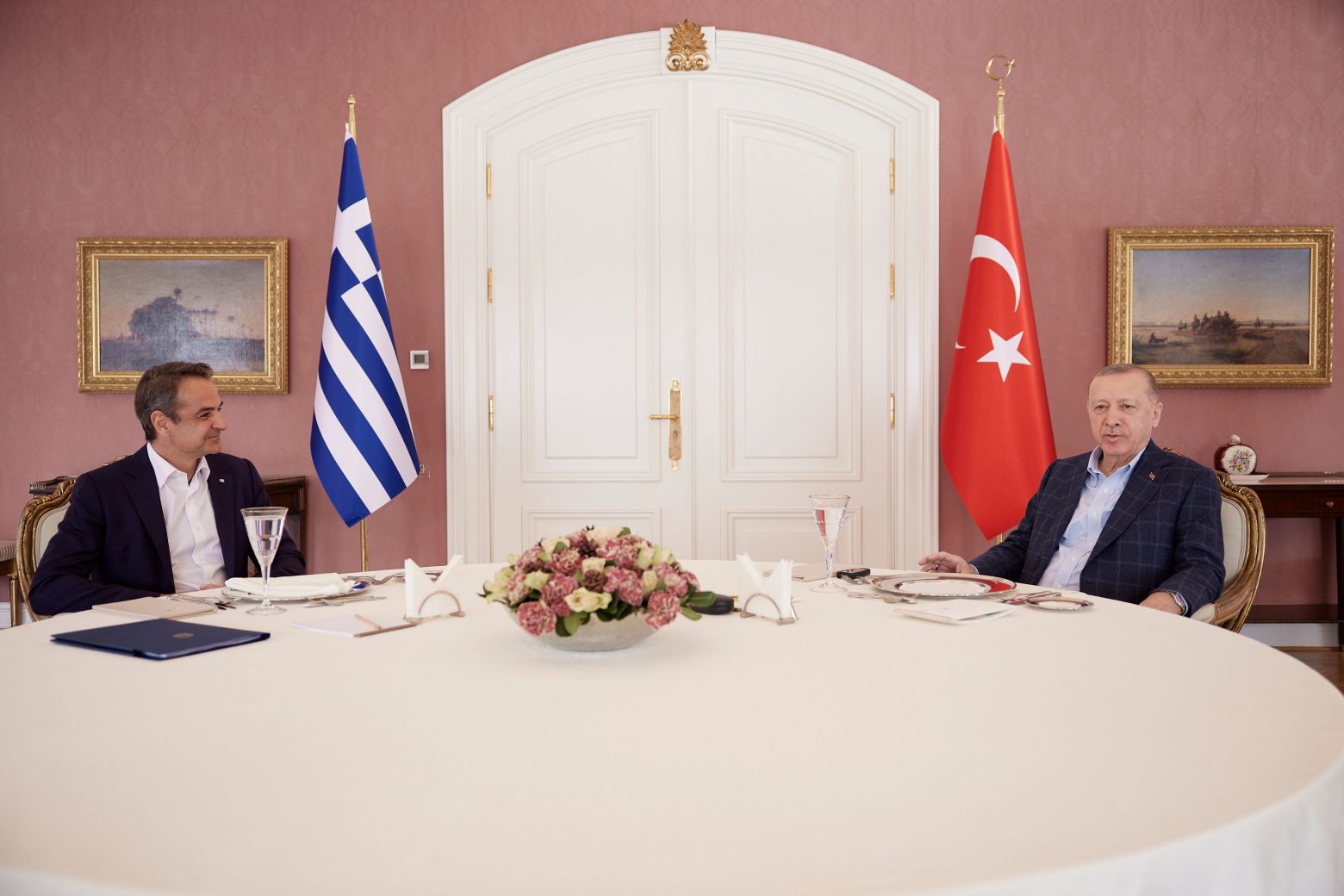By Panagiotis Ioakeimidis*
US Secretary of State Antony Blinken, French Foreign Minister Catherine Colonna, NATO Secretary General Jens Stoltenberg, and the entire international community urge that there be a Greek-Turkish dialogue in order to defuse ongoing tensions.
Turkish Foreign Minister Mevlut Cavusoglu, aside from the list of groundless accusations that he makes against Greece in a letter that he sent to the UN and NATO, maintains that, “Despite Turkey’s stance in support of a dialogue and cooperation, Greece is avoiding dialogue.”
Thus, even as the Turkish foreign minister claims to want dialogue, Turkish President Recep Tayyip Erdogan publicly declared that he does not consider Greece as a worthy interlocutor!
In this toxic climate, when the other side speaks, for example, of the prospect of Turkey occupying Greek islands, how can one shape the conditions for a dialogue>
How can we “bind” Turkey to a truly cooperative framework?
There is very little, if any, room for that to occur.
We have reached the point of being at the verge of war because when we had an opportunity to “reach an understanding with Turkey based on dialogue”, as was the case in 2004, we did not do so.
We believed that “time is on our side”.
We now see the results of that rationale.
Yet, despite all that, and as Utopian as it may sound to some, there is no option but to persist in pursuing the objective of dialogue and of “binding” Turkey in cooperative frameworks, especially the EU.
The French foreign minister was quite clear during her recent visit to Athens.
“It is natural and useful with an allied and neighbouring country to maintain an open dialogue and channel of communication so that everything can be discussed,” she said in a 6 September interview with the daily Kathimerini, essentially prodding Athens to move in that direction.
From that vantage point, it would have been useful if Foreign Minister Nikos Dendias, in his eloquent letter to NATO, the UN, and EU member-states, in which he charged Turkey with hostile behaviour, had included a series of specific initiatives for commencing a dialogue.
Those would include, indicatively, the immediate restoration of diplomatic and other channels of communication between the two countries, a moratorium on public statements on both sides so as to defuse the tense situation, and a re-activation of exploratory talks as soon as possible.
Mr. Dendias’ letter contained none of the above, nor did the prime minister’s keynote address at last weekend’s Thessaloniki International Affair include a reference to restarting a dialogue.
Instead, rhetorically addressing Turkish President Recep Tayyip Erdogan in Turkish, he said “dailikia yok!”, meaning that Greece says “no” to Ankara’s bravado and will not tolerate it.
At his press conference the next day, however, the PM said that he is ready and willing to meet with the Turkish president.
In terms of efforts to commit Turkey to a specific framework for dialogue, it is mandatory that we not squander opportunities when they arise.
It is positive that, as the prime minister announced, Greece agrees to Turkey’s participation in the European Political Community, the new political forum proposed by French President Emmanuel Macron [which would include candidates for EU membership and possibly the UK].
Indeed, European Council President Charles Michel went as far as to declare that the new forum should extend from Oslo to Ankara, and from Reykjavik to Yerevan!
Greece, as The Guardian had reported, initially opposed Turkey’s participation.
However, Turkey’s participation offers an opportunity for one to demand that Ankara abide by rules, abandon its revisionism, and respect international law.
That serves Greece’s objectives and positions.
It is also important that the prime minister does not support imposing sanctions on Turkey in the NATO framework.
The difficult diplomacy of de-escalation and dialogue – with which in the final analysis Erdogan’s insolent threats should be answered – requires flexibility, imagination, and above all inventive initiatives.
*Professor Panagiotis Ioakeimidis is a former ambassador-counsellor of the Greek Foreign Ministry and an advisor of FEPS and ELIAMEP. His latest book, entitled Achievements and Strategic Mistakes in Foreign Policy After the Regime Change, has been published by Themelio Editions.





